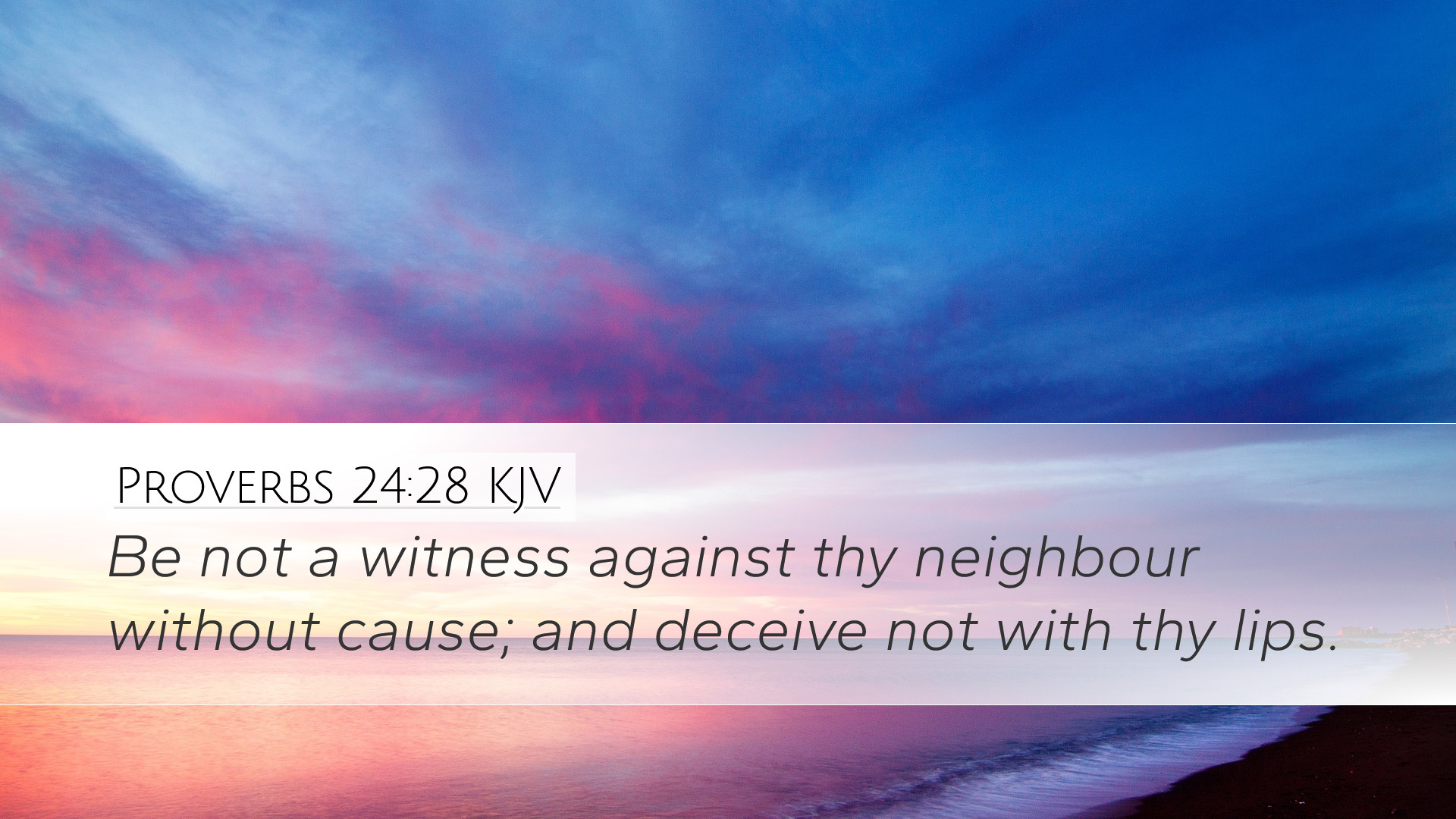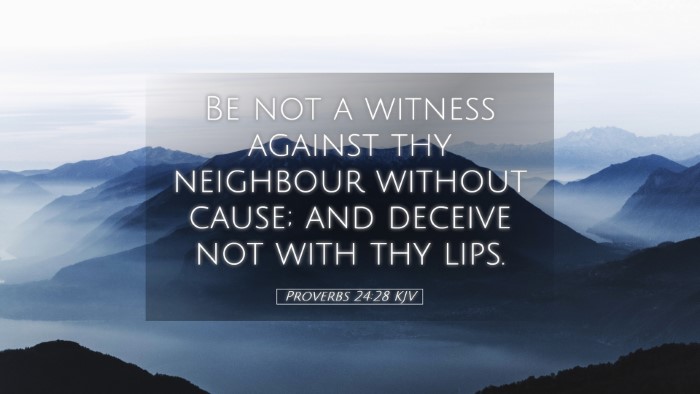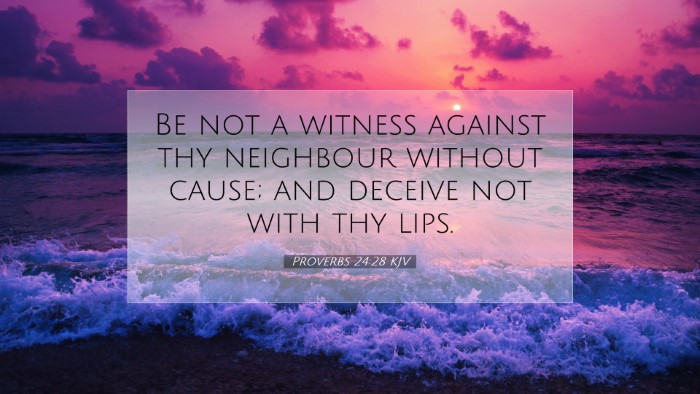Commentary on Proverbs 24:28
Verse: "Be not a witness against thy neighbor without cause; and deceive not with thy lips." (Proverbs 24:28)
Introduction
Proverbs 24:28 presents a profound ethical commandment concerning the behavior of individuals in their interactions with neighbors. This passage emphasizes the importance of truthfulness and integrity in one's testimony and speech. It serves as a warning against false testimony and deceit, encouraging a life grounded in honesty.
Contextual Background
The Book of Proverbs is primarily a collection of sayings and teachings attributed to Solomon, aimed at imparting wisdom and discipline. Proverbs often contrasts the wise and the foolish, encouraging the reader to discern the path of righteousness. Within this framework, Proverbs 24:28 explicitly calls the faithful to avoid misconduct in their dealings with others.
Insights from Commentators
Matthew Henry's Commentary
Matthew Henry emphasizes the moral obligations that individuals hold towards their neighbors, highlighting that a false witness is not merely a violation of social ethics but also an affront to God. He notes that the phrase "without cause" underscores the necessity of having valid reasons before making accusations or claims against another person. Henry warns that those who speak deceitfully will ultimately harm their own souls.
Albert Barnes' Notes
Albert Barnes interprets this verse as a directive to maintain integrity in speech. He points out that deception and false testimony can lead to significant consequences, both for the individual who spreads falsehoods and for the community as a whole. Barnes advises that maintaining a reputation for honesty not only builds one’s character but also strengthens community ties. He reinforces the idea that one’s words should reflect truth, as it is vital in upholding justice and fairness.
Adam Clarke's Commentary
Adam Clarke expands on the notion of community ethics, interpreting the verse as a caution against unverified accusations. He remarks that the implications of false witness can lead to discord and division within a community. Clarke further mentions that this principle ties back to broader biblical teachings on love and neighborliness, where one should strive to uplift and support rather than tear down through deceitful words. He insightfully connects this passage to the teachings of Jesus regarding the value and power of one’s words.
Theological Implications
Engaging with Proverbs 24:28 from a theological standpoint reveals several layers of meaning. First, the moral duty to avoid false witness aligns with the nature of God as the ultimate truth. As believers are called to reflect God's character, integrity becomes paramount. This verse invites an examination of personal ethics in light of communal relationships and divine authority.
Practical Applications
- Integrity in Testimony: Pastors and leaders should model honesty in their speech, ensuring that their words uplift the truth rather than promote divisiveness.
- Community Builder: Encourage congregants to engage in discussions that foster unity, avoiding gossip or unsubstantiated claims about others.
- Self-Reflection: Individuals are urged to assess their own motives and words closely, asking whether they speak out of love or selfish ambition.
- Conflict Resolution: When conflicts arise, approach them with a desire for transparency and honesty, seeking to resolve matters without slander or deceit.
Conclusion
Proverbs 24:28 stands as a timeless exhortation to practice honesty in all dealings. The insights drawn from respected commentators enhance our understanding of the implications of this verse, urging believers to embody the principles of truth, integrity, and love in their relationships. As congregations grow in these virtues, they cultivate a community that honors God, reflecting the wisdom found in Scripture.


